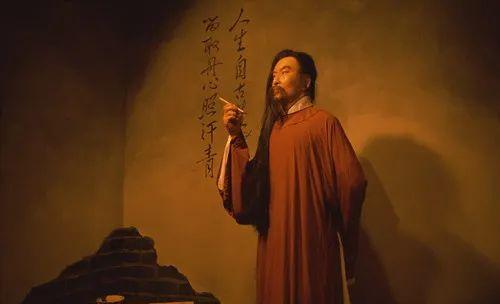We all know that Wen Tianxiang was imprisoned by the Yuan Dynasty for three years after his defeat and capture, in fact, before that, Wen Tianxiang went to the Yuan military camp on behalf of the Southern Song Dynasty government to negotiate peace, and was also detained.
The time of this detention was not long, and on the way to escort him to the north, Wen Tianxiang took the opportunity to escape, and this short-term detention was of great significance to Wen Tianxiang's life.
During this detention, Wen Tianxiang had already made up his mind to die, refused the coercion and inducement of the Yuan Dynasty, and preferred to die unyieldingly, for which he wrote a lot of inspirational poems, which were compiled into a book and named "Guide Record".
After Wen Tianxiang escaped from the Yuan camp, on his way back to the south, he heard that some people within the Southern Song Government had framed and slandered him, saying that he had surrendered to the Yuan Dynasty.
For this reason, Wen Tianxiang was very sad and indignant, and he wrote a poem to show his heart and position, which is "The Dragon Boat Festival".

"At noon on the fifth of May, give me a stick of mugwort." The old man is invisible, and the new knows thousands of miles away. Dan's heart has been remembered, and his sideburns have changed. I want to be separated from Lingjun, sanxiang across the Liao sea. ”
This poem is roughly translated to mean: On the Fifth Dragon Boat Festival in early May, you gave me a stick of wormwood, and the deceased was invisible, but the confidant was thousands of miles away. Those who used to be loyal to their country are now gray-haired. I wanted to get hope from Qu Yuan, but the land of Sanxiang was far away.
This poem is with the help of the Dragon Boat Festival, expressing the author's bold loyalty and feelings of nostalgia for his homeland.
At that time, the Yuan Dynasty army had already occupied Lin'an, the Southern Song Dynasty Emperor Gong surrendered, Lu Xiufu Zhang Shijie and others supported the new monarch, organized a government-in-exile, and fled south.
Wen Tianxiang had previously been sent to yuanying for peace talks, but was detained, and on the way to the north, he took the opportunity to escape.
Wen Tianxiang went all the way south, hoping to turn back to the homeland of the Southern Song Dynasty, continue to serve the country, and resist the Yuan soldiers.
However, when he faced the vast rivers and heard that some people in the DPRK had slandered and framed him, he could not help but feel sad and indignant.
He once wrote "Yangtze River", saying that his "heart is like" a magnetic needle stone in his heart, and he will not rest without guiding the party. Now he wrote "The Dragon Boat Festival" and said, "The old people are invisible, and the new knowledge is thousands of miles away." "The mood is in the same vein, echoing back and forth.
Wen Tianxiang was extremely concerned about his homeland, the land of Sanxiang was the place where Qu Yuan threw himself into the river, and since he admired Qu Yuan, he added to his nostalgia for his homeland, the so-called "I want to be from Lingjun, and Sanxiang is separated from the Liaohai Sea", which is exactly what he means.
Wen Tianxiang not only had to be similar to Qu Yuan, but later he organized a rebel army to resist the Yuan, defeated and captured on the way to escort, passing through his hometown of Jiangxi, he even wrote "Nan'an Army", saying that he "starved to death Zhen Wuzhi and acted in his dreams to do Caiwei", which he wanted to learn from Boyi Shuqi to starve to Shouyang Mountain, in order to Mingzhi.
In fact, like Wen Tianxiang's classic works "Crossing zero Ding Yang" and "Song of Righteous Qi", "Dragon Boat Festival" is an indignant work of the author when the country was lost and he suffered misfortune, and he not only felt sad about the collapse of the society, but also firmly expressed his belief that he would fight to the death and never surrender.
The spirit of Wen Tianxiang has long become a precious treasure of our nation, and today we can still feel the awe-inspiring righteousness when we read Wen Chengxiang's poems.